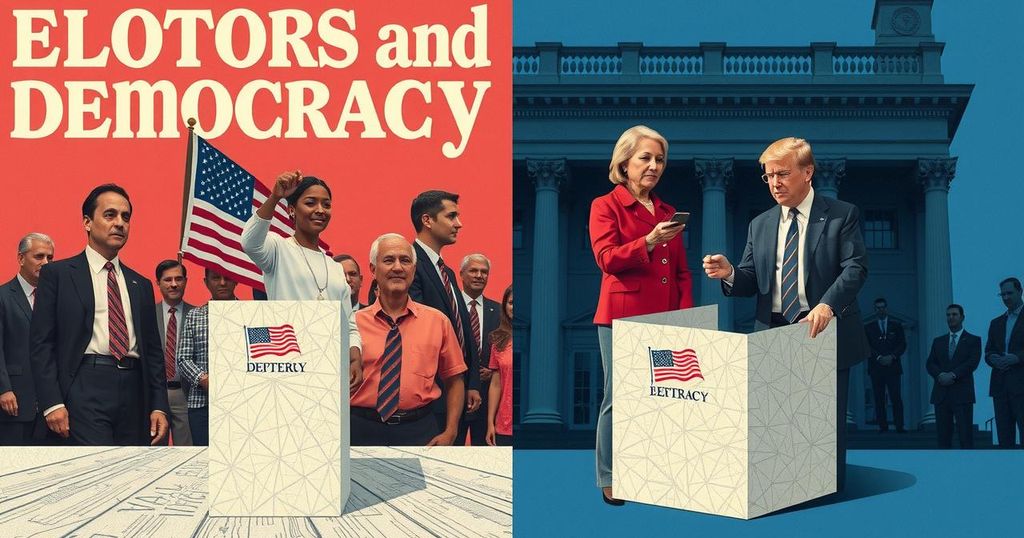The 2024 Elections: A Year of Disillusionment for Democracy
In 2024, elections across more than 70 countries often backfired, bolstering autocracies and inciting violence. Significant investment in electoral processes did not equate to democratization; instead, it highlighted failures in civic engagement. Experts advocate for reforming governance structures to enhance citizen empowerment, moving beyond traditional elections to ensure real democratic representation.
In the year 2024, the global landscape of elections revealed profound discrepancies between electoral processes and the essence of true democracy. While over 70 countries held elections, symbolizing a historical high, the outcomes were often disappointing, reinforcing autocratic regimes and inciting violence rather than promoting genuine democratic governance. As Josh Lerner observed, the significant investment in elections has not translated into meaningful democratic representation, with many citizens losing faith in their ability to effect change through traditional voting mechanisms.
Numerous elections were exploited by incumbents to suppress opposition, as highlighted by Freedom House’s findings of numerous instances where voters faced manipulation and violence during the electoral process. Countries like Mexico and South Africa witnessed assassination attempts against candidates, while ethnic violence marked elections in India. Notably, the term “sore winner” emerged, showcasing leaders who sought to further entrench their power following electoral victories, emphasizing a troubling trend toward authoritarianism.
On a brighter note, some shifts in power occurred globally, signaling potential democratic progress. Yet, these often resulted in continued violence or strife rather than the anticipated stability. The persistent focus on elections over foundational democratic processes is leading many experts, including Leonora Camner, to advocate for empowering citizens through alternative governance models, such as participatory budgeting and citizens’ assemblies.
In light of this, Matt Leighninger suggested reforms to enhance local decision-making, indicating that true democracy requires a paradigm shift away from mere electoral participation to a more engaged citizenry. Without embracing such transformative strategies, the relentless cycle of elections may continue to erode the very fabric of democracy.
In conclusion, the events of 2024 compel a reevaluation of societal investment in elections and a reconsideration of how best to foster democracy. To reclaim democratic values, it is imperative to prioritize environments that enable authentic engagement and self-governance among citizens, instead of remaining fixated on flawed electoral systems.
The commentary outlines the tensions between electoral processes and democratic principles as experienced throughout the tumultuous events of 2024. With billions invested in elections across dozens of countries, many citizens felt disenfranchised by outcomes marred by manipulation, violence, and autocratic practices. This juxtaposition of expectations versus reality raises critical questions about the role of elections in democracies and whether alternative structures should be developed to empower citizens.
Ultimately, the commentary elucidates that the sheer act of holding elections does not equate to the functioning of a democracy. The lessons of 2024 highlight the importance of directing efforts towards fostering genuine democratic engagement, reforming governance frameworks, and ensuring the citizenry possesses real agency in decision-making rather than simply participating in flawed electoral rituals. A shift in focus is essential to cultivate a healthier democratic environment.
Original Source: stocktonia.org




Post Comment